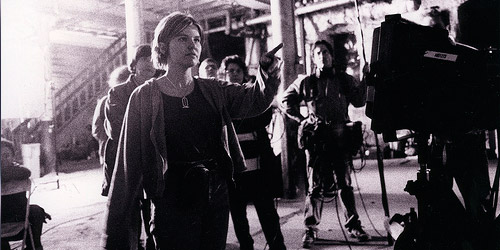
How many people really impress you? If you’re like most people, not many. But even the most jaded among us will be impressed with what Andree Cazabon has done. There are some shocking things to be told about her time as a 13-year-old street kid, about her drug addiction, and about some of the horrible things that have happened to her. The fact that she has recovered, gone to university, and now works in the film industry may raise the odd eyebrow. There must be more to this story; otherwise, why write about her? Well, Andree has done something truly courageous—she has gone back to her painful past, mulled it over, and realized that she has something to say about it.
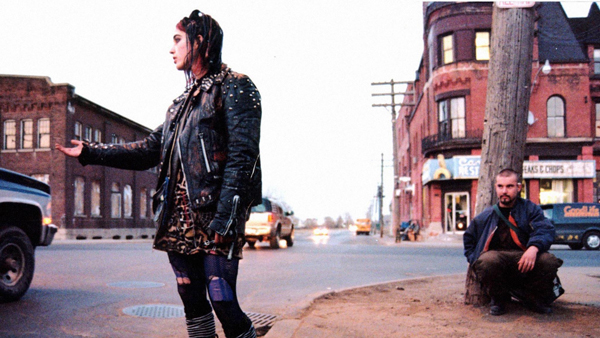
A few years ago, Andree got the opportunity to make a short film called, Letters To A Street Child. It was a story about a young girl from a safe, suburban home who leaves, becomes addicted to glue, and finally is sent off to a treatment centre by her parents. In the beginning, she passed this story off as fiction. And why not? Who wants to blab about any part of their past, especially one as difficult as that? But she couldn’t quite do it. She realized that she was in a unique position to explore the issue of drugs and street kids. So she did. And the documentary, No Quick Fix was born.
The concept is simple: a former street kid talks to some other street kids who open up about their lives, their problems, and their pain. But Andree had more to say than that. She wanted to tell the parents’ story too. Now, maybe you’re thinking, what about the parents? Aren’t they to blame for their kids being out on the street? Fair enough. According to Dennis Long of Breakaway Youth and Family Services in Toronto, 60-80 percent of street kids are running away from abuse in the home—whether physical, sexual, or psychological.
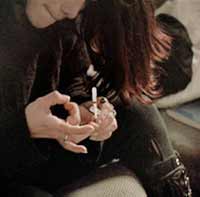
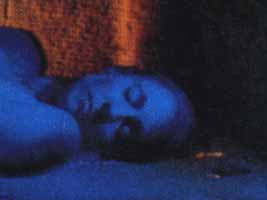
But in Andree’s case, her parents were the normal, worrying, over-protective parents most of us know and try to love. Andree doesn’t blame her parents. She recognized that they went through an incredibly difficult ordeal when she left home. In her documentary, she follows the lives of two young Montrealers and their parents. Laurent, who began doing drugs as a 10-year-old and Cathy, who became a prostitute to support her heroin addiction both have parents who care and worry about them. At one point in the story, Cathy says, “It’s hard to go on your merry way when your mistakes—the pain you’ve caused the people around you can’t simply be erased.” Laurent, who appears bright and sensitive, explains that “You get so desperate for a hit, you’d sell your own mother for the cash.”
And the parents? Andree’s parents remember the pain of giving custody of their child over to Children’s Aid only to watch helplessly as Andree acted out even more under their control. Laurent’s mother, after enduring years of fearing for his life, finally admits that she cannot visit him in jail because it hurts too much. As the director of No Quick Fix, Andree was tasked with the difficult job of entering these people’s lives as an observer—only. She watched Cathy’s mother search the streets for her daughter while Cathy wandered the streets looking for a hit. The pain on both sides is almost tangible, but Andree can only watch and record. Cathy’s mother says, “It’s as if I were dead inside. Sometimes, I just want to die. I don’t know how to cope anymore.”
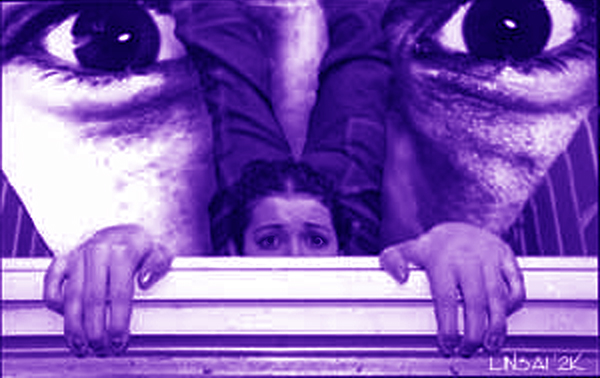
This is not a documentary for the faint of heart. It is also not a documentary full of hard facts and cold statistics. Instead, it’s a heartfelt personal essay by someone with the strength to re-examine a part of their life that most people would want to forget. Andree shares a message that is echoed by the professionals: there are not enough treatment centres out there for young people and there is not enough money or energy being poured into the issue of drug use by teens on the streets.
Andree was lucky, but she knows that many are not. Her dedication to this film has opened the door to a problem many of us try to ignore. Living on the streets isn’t about being cool, rebellious, or independent. In a published statement, Andree writes, “Wanting to be ‘cool’ almost killed me when I was 14.” Hopefully this film and article will convince people to refocus their attention on why kids turn to the streets to escape from their lives. Solving the problem involves more than just money. There are a lot of different treatment options out there and a lot of different viewpoints on what should be done to help.
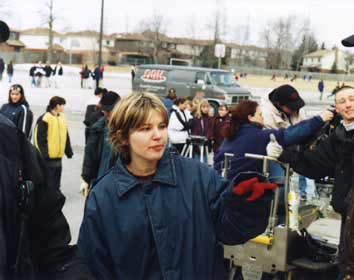
The “tough love” approach says if your friend/sibling/child won’t stay sober or continues to steal from you, cut him or her out of your life. Harm reduction is a treatment style that says we can’t make you get off the streets, but here are some things to do to protect yourself. There are Methadone programs, which replace heroin with a less addictive drug. There’s outpatient treatment, day patient treatment, short-term residential, and long-term residential programmes. All these things work for some people, some of the time. But is there more that we could be doing? How do we convince the kids who need help to get it? How do we keep more kids from turning to the street?
Maybe the politicians, therapists, and doctors of the world need to hear some new voices—like Andree’s voice. She’s been there, done that, and made it out alive.
The No Quick Fix cross-country tour, sponsored by The National Film Board of Canada, in partnership with Canada’s Youth Employment Strategy has scheduled stops in Montreal, Halifax, Vancouver, Kelowna, Calgary, Edmonton, Regina, Winnipeg, Sudbury, North Bay, Ottawa, and Quebec City.
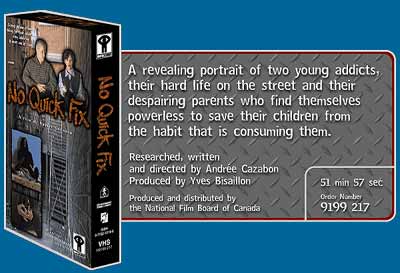
Director, Andrée Cazabon will attend screenings in most locations for a post-screening Q&A discussion. Andrée Cazabon uses her films as a tool for advocacy and public awareness in the hopes of instigating change in this ever-growing problem.
Written by Jennifer Iveson
Art images by Faze’s Linsai Oksenberg

What Do You Think? Leave A Comment!